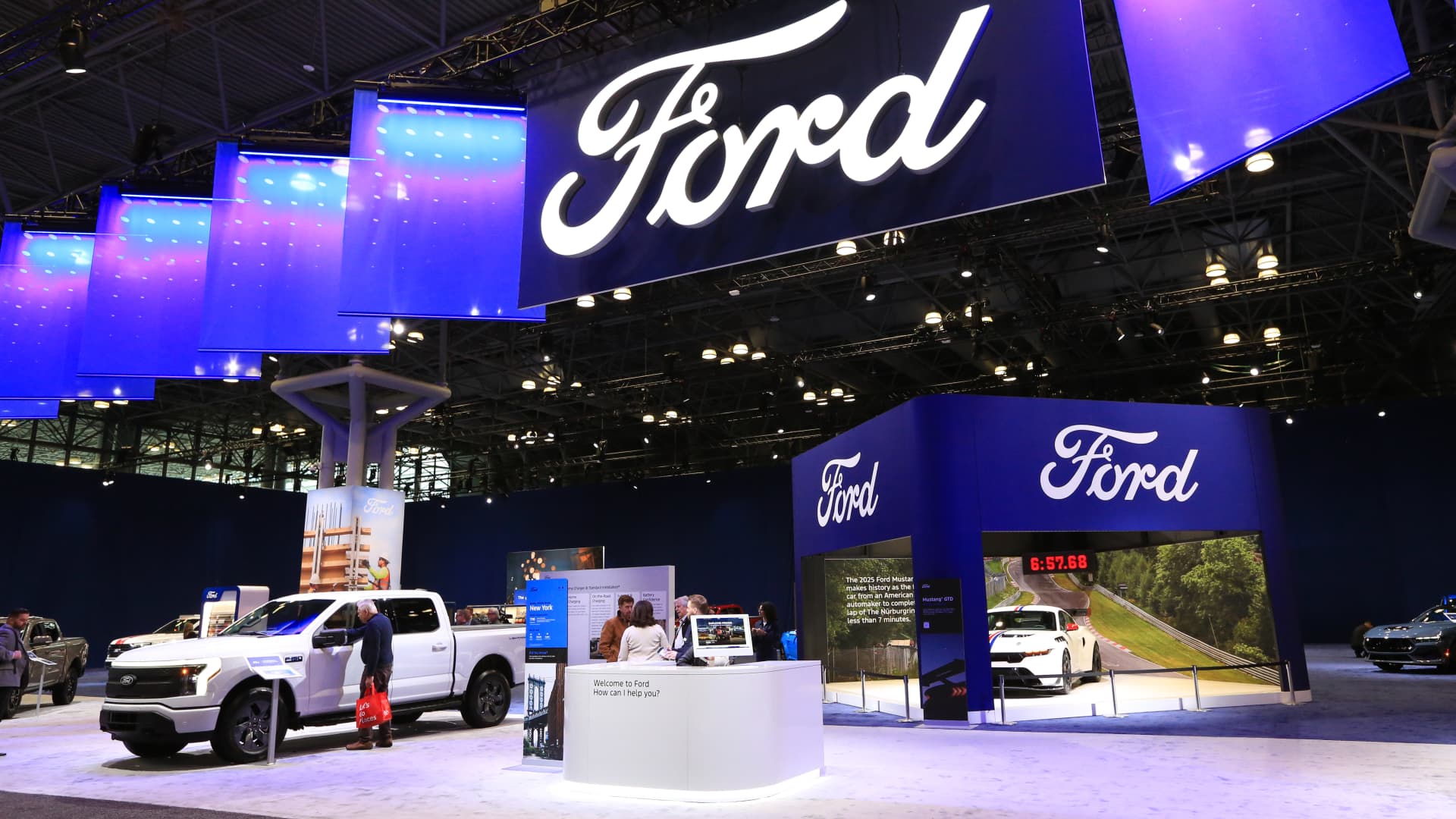Global Trends and Politics
Wealthy Americans Flock to Swiss Banks Amid US Uncertainty

Introduction to De-Americanization of Portfolios
A growing number of wealthy Americans are opening bank accounts in Switzerland as part of the "de-Americanization" of their portfolios, according to investors and banks. Swiss banks say they have seen a surge of interest and business from high-net-worth Americans opening investment accounts in recent months.
Reasons Behind the Trend
"It comes in waves," said Pierre Gabris, CEO of Alpen Partners International, a Swiss financial consulting firm. "When [former President Barack Obama] was elected we saw a big wave. Then Covid was another wave. Now tariffs are causing a new wave." Gabris said different clients have different motivations for opening an account. Many want to diversify away from the dollar, which they believe will weaken even further under the weight of the soaring U.S. debt. Switzerland’s neutral politics, stable economy, strong currency and reliable legal system are all a draw.
Motivations for Opening Swiss Accounts
Others are motivated by politics and what they see as a decline in the rule of law in the U.S. under the Trump administration. Others still are opening Swiss accounts to buy physical gold in Switzerland, which is famous for its gold storage and refineries. Gabris said many are also looking for residency or second citizenships in Europe and want to buy property. "It’s a plan B," he said.
Process of Opening a Swiss Bank Account
Opening a Swiss bank account is fairly straightforward but has to comply with strict U.S. disclosure laws. While the major U.S. banks can’t open Swiss accounts for clients, most have referral relationships with a handful of Swiss companies that are registered with the SEC and are allowed to accept U.S. investors. Vontobel SFA, believed to be the largest Swiss bank registered with the SEC for U.S. clients, declined to comment. The Swiss private bank Pictet said it had seen a "significant uptick" in requests from clients at its Swiss-based entity Pictet North America Advisors, which is registered with the SEC.
Regulation and Transparency
While opening a Swiss bank account decades ago may have carried a trace of illicit tax evasion, today it’s highly regulated and more widespread, complete with tax forms and reporting. "Many Americans are realizing that 100% of their portfolio is in U.S. dollars so they’re thinking, ‘Maybe I should diversify," Gabris said.
Conclusion
The trend of wealthy Americans opening bank accounts in Switzerland as part of the "de-Americanization" of their portfolios is driven by various factors, including diversification, political instability, and economic uncertainty. As the global economic landscape continues to evolve, it is likely that this trend will persist, with more high-net-worth individuals seeking to diversify their assets and secure their financial futures.
FAQs
Q: Why are wealthy Americans opening bank accounts in Switzerland?
A: Wealthy Americans are opening bank accounts in Switzerland to diversify their portfolios, escape political instability, and take advantage of Switzerland’s stable economy and strong currency.
Q: Is it legal for Americans to open a Swiss bank account?
A: Yes, it is legal for Americans to open a Swiss bank account, but it must comply with strict U.S. disclosure laws.
Q: What are the benefits of opening a Swiss bank account?
A: The benefits of opening a Swiss bank account include diversification, access to a stable economy and strong currency, and the ability to buy physical gold in Switzerland.
Q: How do I open a Swiss bank account?
A: To open a Swiss bank account, you can work with a Swiss company that is registered with the SEC and allowed to accept U.S. investors, or use a referral relationship with a major U.S. bank.
Q: Is opening a Swiss bank account a sign of tax evasion?
A: No, opening a Swiss bank account is not necessarily a sign of tax evasion. Today, it is a highly regulated and transparent process, complete with tax forms and reporting.
Global Trends and Politics
Artificial Intelligence and Labor: The Need for a New Social Contract

Global labor movement updates indicate a significant shift in the workforce due to the increasing presence of Artificial Intelligence (AI). As AI continues to advance and automate jobs, there is a growing need for a new social contract that protects workers’ rights and ensures fair compensation. The integration of AI in various industries has sparked intense debate about the future of work and the potential consequences for labor markets.
Understanding Artificial Intelligence and its Impact on Labor
The advent of AI has revolutionized the way businesses operate, making it possible to automate tasks that were previously performed by humans. While AI has increased efficiency and productivity, it has also raised concerns about job displacement and the need for workers to acquire new skills. According to a report by the McKinsey Global Institute, up to 800 million jobs could be lost worldwide due to automation by 2030.
The Benefits of Artificial Intelligence
AI has numerous benefits, including improved accuracy, enhanced customer experience, and increased productivity. For instance, AI-powered chatbots have enabled companies to provide 24/7 customer support, improving response times and reducing the workload of human customer support agents. Additionally, AI has enabled businesses to analyze vast amounts of data, making it possible to identify trends and make informed decisions.
The Dark Side of Artificial Intelligence
Despite its benefits, AI has a dark side, particularly when it comes to labor. The automation of jobs has led to significant job displacement, with many workers struggling to find new employment. Furthermore, AI has exacerbated income inequality, as those with the skills to work with AI are often rewarded with higher salaries, while those without these skills are left behind. The gig economy, which has grown exponentially in recent years, has also created new challenges for workers, including lack of job security and limited access to benefits.
The Need for a New Social Contract
The integration of AI in the workforce has highlighted the need for a new social contract that protects workers’ rights and ensures fair compensation. A new social contract would need to address issues such as job displacement, income inequality, and access to benefits. It would also need to provide workers with the skills and training required to work with AI, enabling them to adapt to an ever-changing job market.
Universal Basic Income: A Potential Solution
One potential solution to the challenges posed by AI is Universal Basic Income (UBI). UBI involves providing every citizen with a guaranteed minimum income, regardless of their employment status. This would enable workers to pursue new opportunities and acquire new skills, without fear of poverty or financial instability. Several countries, including Finland and Canada, have experimented with UBI, with promising results.
Upskilling and Reskilling: The Key to Success
Another crucial aspect of a new social contract is upskilling and reskilling. As AI continues to automate jobs, workers will need to acquire new skills to remain relevant in the job market. Governments, educational institutions, and businesses will need to work together to provide workers with the training and education required to work with AI. This could include programs such as apprenticeships, vocational training, and online courses.
Global Responses to the Challenges of Artificial Intelligence
Governments and organizations around the world are responding to the challenges posed by AI in various ways. For instance, the European Union has established the European Commission’s High-Level Expert Group on Artificial Intelligence, which aims to develop guidelines for the development and use of AI. In the United States, the city of San Francisco has established an Office of Emerging Technology, which focuses on the responsible development and deployment of AI.
Regulating Artificial Intelligence
Regulating AI is essential to ensuring that its development and deployment are responsible and transparent. This could involve establishing guidelines for the use of AI, as well as providing workers with the right to appeal decisions made by AI systems. Regulation could also involve ensuring that AI systems are fair and unbiased, and that they do not perpetuate existing social inequalities.
Encouraging Diversity and Inclusion
Encouraging diversity and inclusion in the development and deployment of AI is crucial to ensuring that its benefits are shared by all. This could involve providing opportunities for underrepresented groups to acquire the skills and training required to work with AI. It could also involve ensuring that AI systems are designed and developed with diversity and inclusion in mind, and that they do not perpetuate existing social inequalities.
Conclusion
The integration of AI in the workforce has significant implications for labor, and there is a growing need for a new social contract that protects workers’ rights and ensures fair compensation. A new social contract would need to address issues such as job displacement, income inequality, and access to benefits. It would also need to provide workers with the skills and training required to work with AI, enabling them to adapt to an ever-changing job market. By working together, governments, educational institutions, and businesses can create a future where the benefits of AI are shared by all.
Frequently Asked Questions
What is Artificial Intelligence, and how is it impacting labor?
Artificial Intelligence (AI) refers to the development of computer systems that can perform tasks that would typically require human intelligence, such as learning, problem-solving, and decision-making. The integration of AI in the workforce has significant implications for labor, including job displacement, income inequality, and access to benefits.
What is Universal Basic Income, and how could it address the challenges posed by AI?
Universal Basic Income (UBI) involves providing every citizen with a guaranteed minimum income, regardless of their employment status. UBI could address the challenges posed by AI by providing workers with a safety net, enabling them to pursue new opportunities and acquire new skills without fear of poverty or financial instability.
How can workers acquire the skills and training required to work with AI?
Workers can acquire the skills and training required to work with AI through various programs, including apprenticeships, vocational training, and online courses. Governments, educational institutions, and businesses will need to work together to provide workers with the training and education required to work with AI.
What role can regulation play in ensuring the responsible development and deployment of AI?
Regulation can play a crucial role in ensuring the responsible development and deployment of AI. This could involve establishing guidelines for the use of AI, as well as providing workers with the right to appeal decisions made by AI systems. Regulation could also involve ensuring that AI systems are fair and unbiased, and that they do not perpetuate existing social inequalities.
How can diversity and inclusion be encouraged in the development and deployment of AI?
Diversity and inclusion can be encouraged in the development and deployment of AI by providing opportunities for underrepresented groups to acquire the skills and training required to work with AI. It could also involve ensuring that AI systems are designed and developed with diversity and inclusion in mind, and that they do not perpetuate existing social inequalities.
Global Trends and Politics
Ford Faces Uncertain 2025 Outlook Amid Tariffs Ahead of Q1 Earnings Report

DETROIT – Ford Motor is set to report its first-quarter earnings after the markets close Monday, but investor focus is expected to be more on the automaker’s 2025 guidance and impact of President Donald Trump’s ongoing auto tariffs than on the quarterly results.
Impact of Auto Tariffs
The tariffs, including 25% levies on imported vehicles and many parts, have created growing uncertainty for the automotive industry. The instability has caused Wall Street analysts to downgrade many automotive stocks, including Ford.
Expected Earnings
Here’s what Wall Street expects, based on average analysts’ estimates:
- Earnings per share: 2 cents adjusted
- Automotive revenue: $36.21 billion
Those results would mark a 9.2% decrease in revenue compared with a year earlier and a 96% dive in adjusted earnings per share. Ford’s first quarter of 2024 included $39.89 billion in automotive revenue, net income of $1.33 billion, and adjusted earnings before interest and taxes of $2.76 billion.
Manufacturing Plans
The Detroit automaker has stopped exporting vehicles to China as a result of the tariffs, but Ford has not publicly announced any significant changes to its North American manufacturing plans.
Financial Impact
Ford CEO Jim Farley on Wednesday declined to detail any financial impact the tariffs are expected to have on the company or whether it planned to pull its 2025 guidance.
Ford’s 2025 forecast from February called for adjusted earnings before interest and taxes, or EBIT, of $7 billion to $8.5 billion; adjusted free cash flow of $3.5 billion to $4.5 billion; and capital expenditures between $8 billion and $9 billion.
Comparison with General Motors
Ford crosstown rival General Motors last week lowered its 2025 financial guidance to include an expected $4 billion to $5 billion impact as a result of the tariffs.
Conclusion
The upcoming earnings report from Ford Motor is highly anticipated, with investors eagerly waiting to see how the company will navigate the challenges posed by the ongoing auto tariffs. The impact of these tariffs on the automotive industry as a whole is still uncertain, and Ford’s guidance for 2025 will be closely watched for any signs of how the company plans to mitigate their effects.
FAQs
Q: What is the expected earnings per share for Ford Motor in the first quarter?
A: The expected earnings per share is 2 cents adjusted.
Q: How much is the automotive revenue expected to be?
A: The expected automotive revenue is $36.21 billion.
Q: What is the impact of the tariffs on Ford’s manufacturing plans?
A: Ford has stopped exporting vehicles to China as a result of the tariffs, but has not announced any significant changes to its North American manufacturing plans.
Q: How does Ford’s 2025 forecast compare to General Motors’?
A: Ford’s 2025 forecast includes adjusted earnings before interest and taxes of $7 billion to $8.5 billion, while General Motors expects an impact of $4 billion to $5 billion as a result of the tariffs.
Global Trends and Politics
American Airlines Unveils New Suites With Sliding Doors

American Airlines’ new suites with sliding doors are set to start flying on some of its planes in June, a key part of its strategy to compete against more profitable rivals for high-spending customers. American first unveiled the new design in September 2022 and expected to start flying the new seats in 2024 but, like other carriers, faced delays from suppliers. First- and business-class airplane seats throughout the industry have become so elaborate that they’ve held up deliveries of new aircraft.
Launch of Flagship Suites
American’s new suites on the Boeing 787-9 will debut for regularly scheduled service on June 5 between its hub at Chicago O’Hare International Airport and London Heathrow Airport, followed by Philadelphia to London on Aug. 6 and Philadelphia to Zurich on Sept. 3. Another flight, outfitted with the new seats, between Dallas Fort Worth International Airport and Brisbane, Australia, is set to start Oct. 26.
Pricing and Availability
A roundtrip leaving Aug. 11 and returning Aug. 18 between Philadelphia and London in the “Flagship business class” costs $5,342 on American’s website. The 787-9 cabin will feature 51 of the “Flagship Suites,” which will be the new international business class. The carrier’s 787-9s currently have 30 Flagship business-class seats, 21 premium economy, 34 extra-legroom seats and 200 in standard economy.
Industry Trends and Competition
American said in 2022 that it plans to get rid of its international first class on many of its planes in favor of the larger single premium cabin at the front of the plane. It’s retrofitting older 777-300ER jets and will have a similar, but smaller, layout on its Airbus A321XLRs. The craze of offering sliding doors has rippled through the industry. Rivals like JetBlue Airways have upgraded their highest-end cabins to feature the doors, while Santiago, Chile-based Latam Airlines said Thursday that it started operating its new business class with sliding doors on some of its aircraft, part of a $360 million fleet refresh.
Upgrades and Improvements
Delta Air Lines’ Delta One suites offer the feature and United Airlines is rumored to soon unveil upgraded premium seating that could feature sliding doors as well. American is also upgrading other amenities, like offering free Wi-Fi to its loyalty program members, which Delta already does and United is set to provide this year.
Conclusion
American Airlines’ new Flagship Suite is a significant upgrade to its premium seating, offering sliding doors and a more luxurious experience for high-spending customers. With the launch of these new suites, American aims to compete with its rivals and provide a better experience for its loyal customers.
FAQs
Q: When will American Airlines’ new Flagship Suite start flying?
A: The new suites will start flying on June 5 between Chicago O’Hare International Airport and London Heathrow Airport.
Q: How much does a roundtrip ticket in the Flagship business class cost?
A: A roundtrip leaving Aug. 11 and returning Aug. 18 between Philadelphia and London in the “Flagship business class” costs $5,342 on American’s website.
Q: What other airlines offer sliding doors in their premium cabins?
A: JetBlue Airways, Delta Air Lines, and Latam Airlines offer sliding doors in their premium cabins, while United Airlines is rumored to soon unveil upgraded premium seating with this feature.
Q: What other upgrades is American Airlines offering?
A: American is also upgrading other amenities, like offering free Wi-Fi to its loyalty program members.
-

 Career Advice5 months ago
Career Advice5 months agoInterview with Dr. Kristy K. Taylor, WORxK Global News Magazine Founder
-

 Diversity and Inclusion (DEIA)5 months ago
Diversity and Inclusion (DEIA)5 months agoSarah Herrlinger Talks AirPods Pro Hearing Aid
-

 Career Advice5 months ago
Career Advice5 months agoNetWork Your Way to Success: Top Tips for Maximizing Your Professional Network
-

 Changemaker Interviews4 months ago
Changemaker Interviews4 months agoUnlocking Human Potential: Kim Groshek’s Journey to Transforming Leadership and Stress Resilience
-

 Diversity and Inclusion (DEIA)5 months ago
Diversity and Inclusion (DEIA)5 months agoThe Power of Belonging: Why Feeling Accepted Matters in the Workplace
-

 Global Trends and Politics5 months ago
Global Trends and Politics5 months agoHealth-care stocks fall after Warren PBM bill, Brian Thompson shooting
-

 Global Trends and Politics5 months ago
Global Trends and Politics5 months agoUnionization Goes Mainstream: How the Changing Workforce is Driving Demand for Collective Bargaining
-

 Training and Development5 months ago
Training and Development5 months agoLevel Up: How Upskilling Can Help You Stay Ahead of the Curve in a Rapidly Changing Industry









